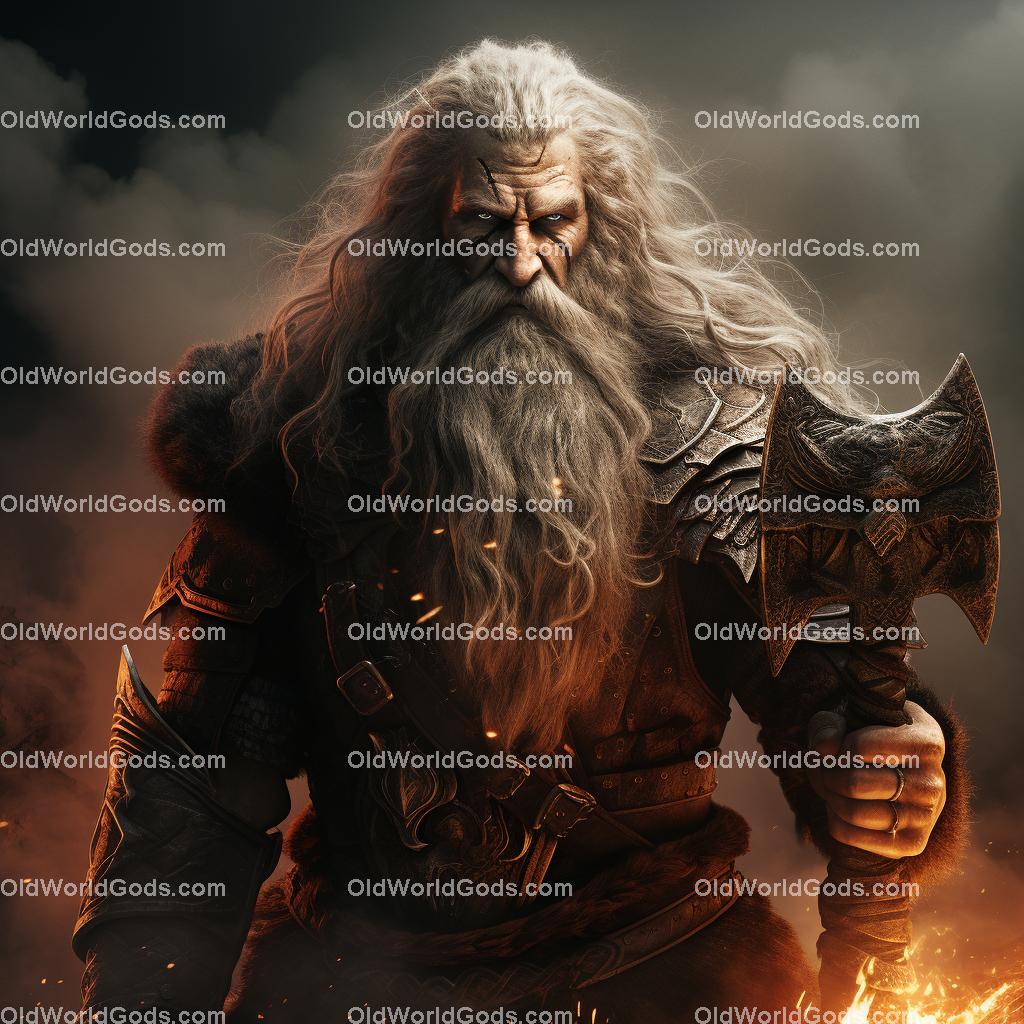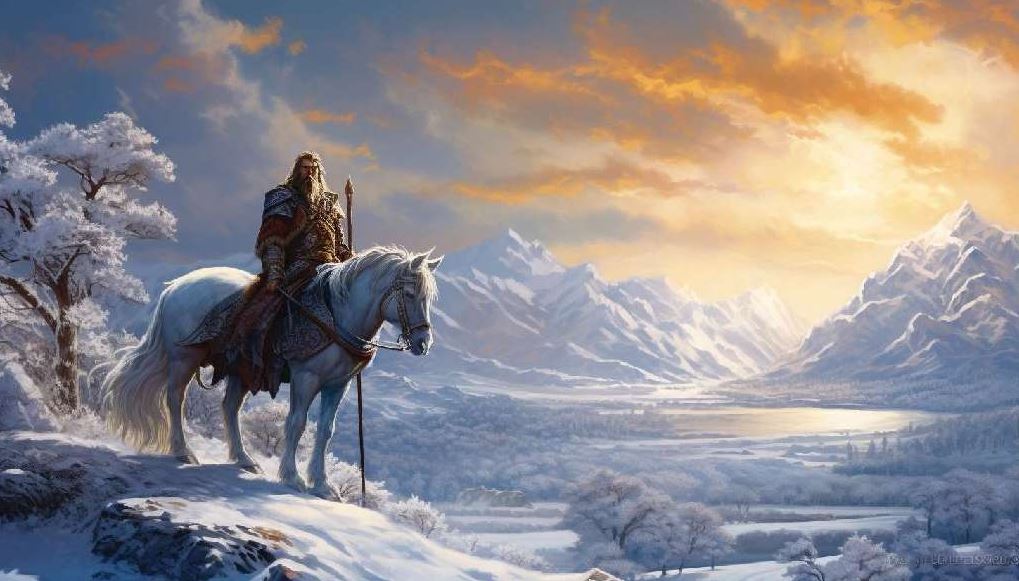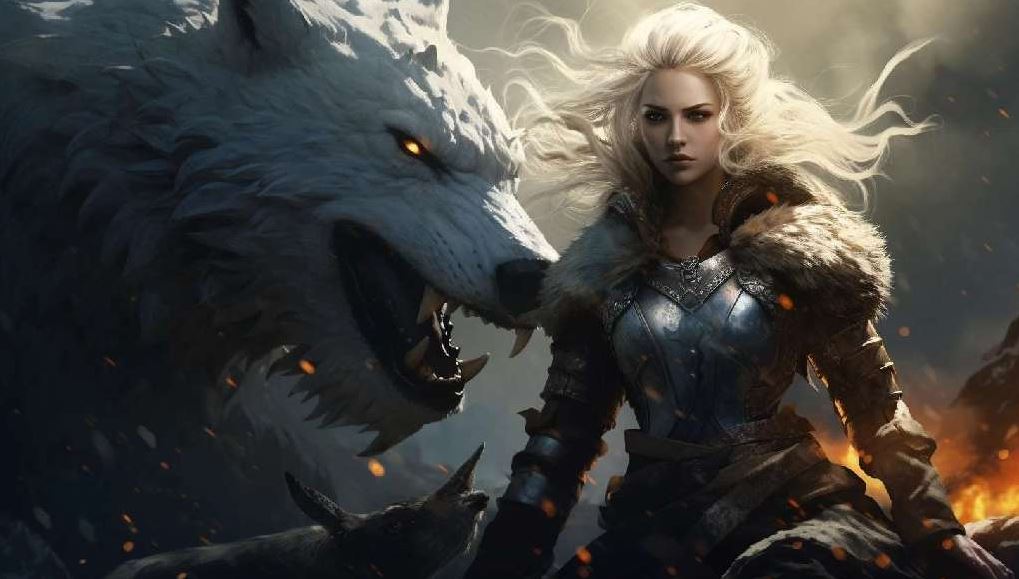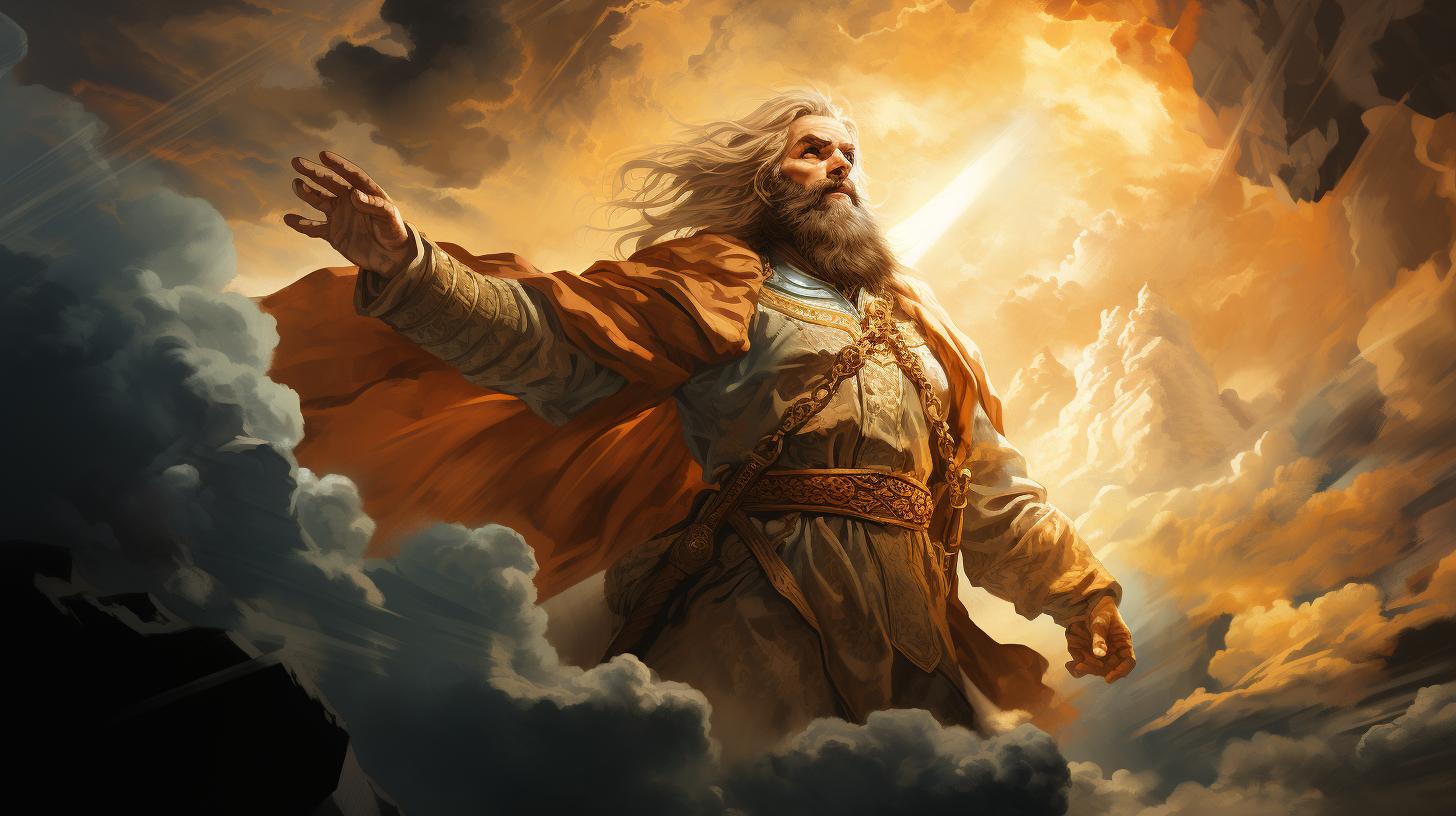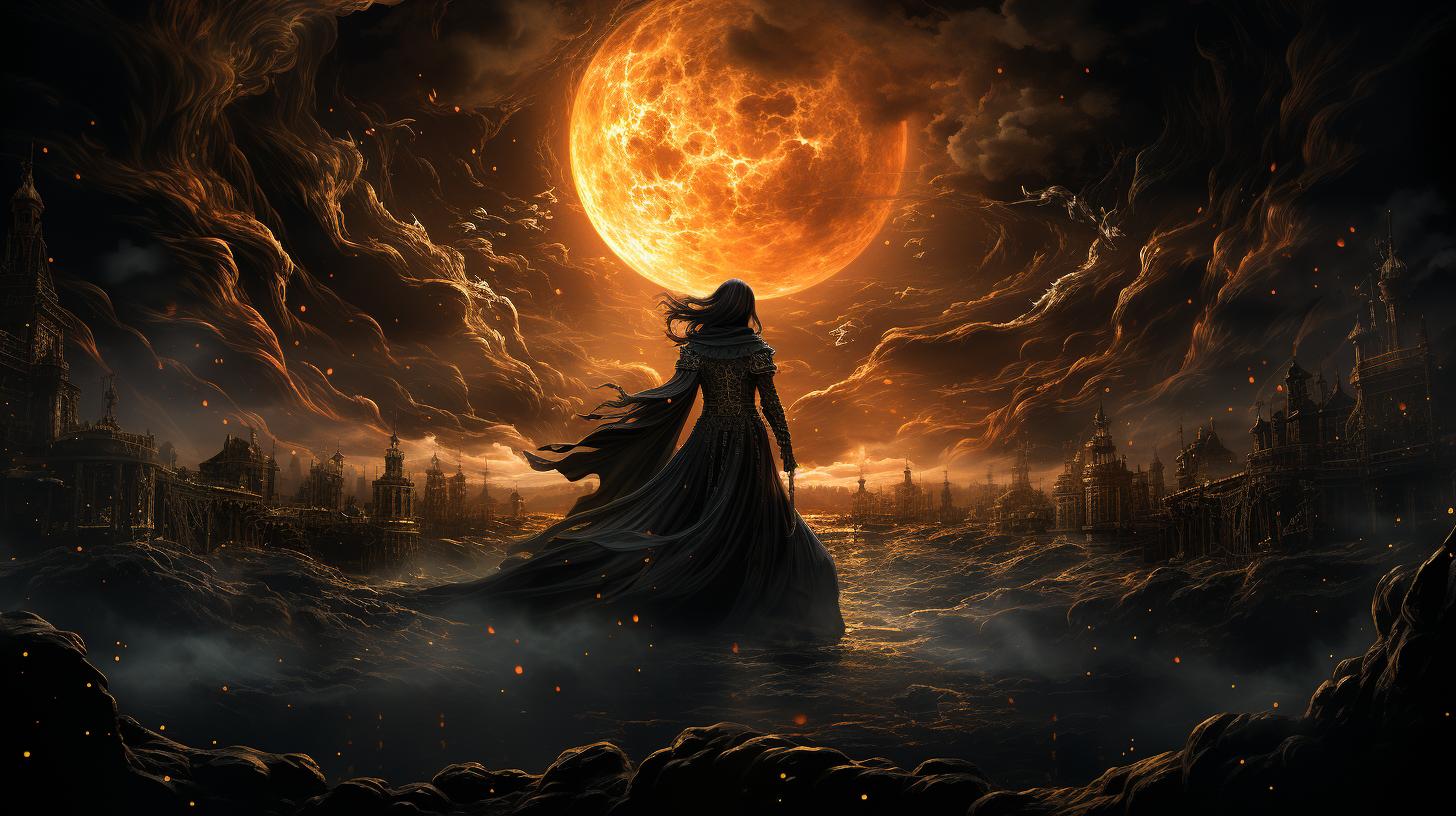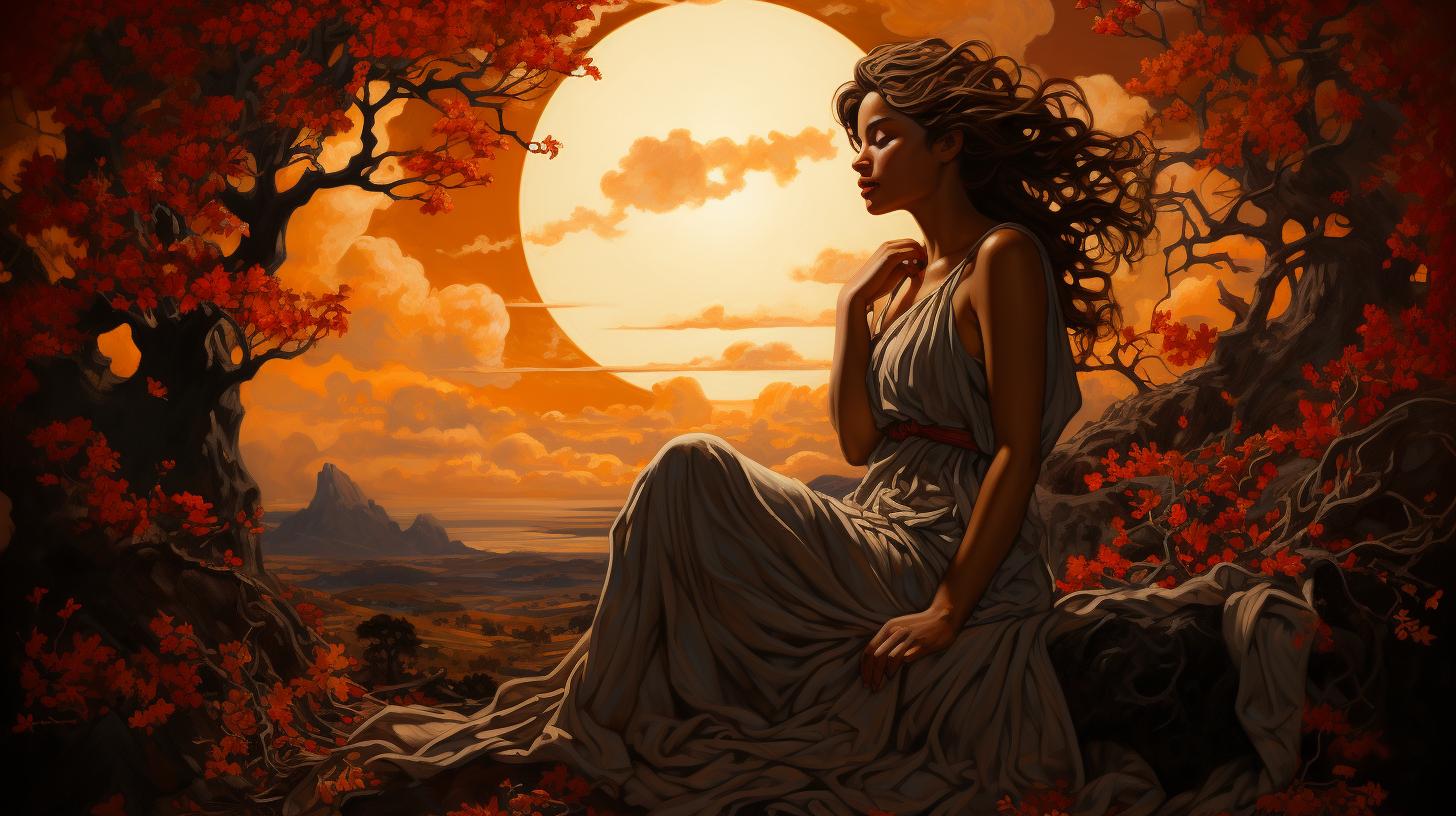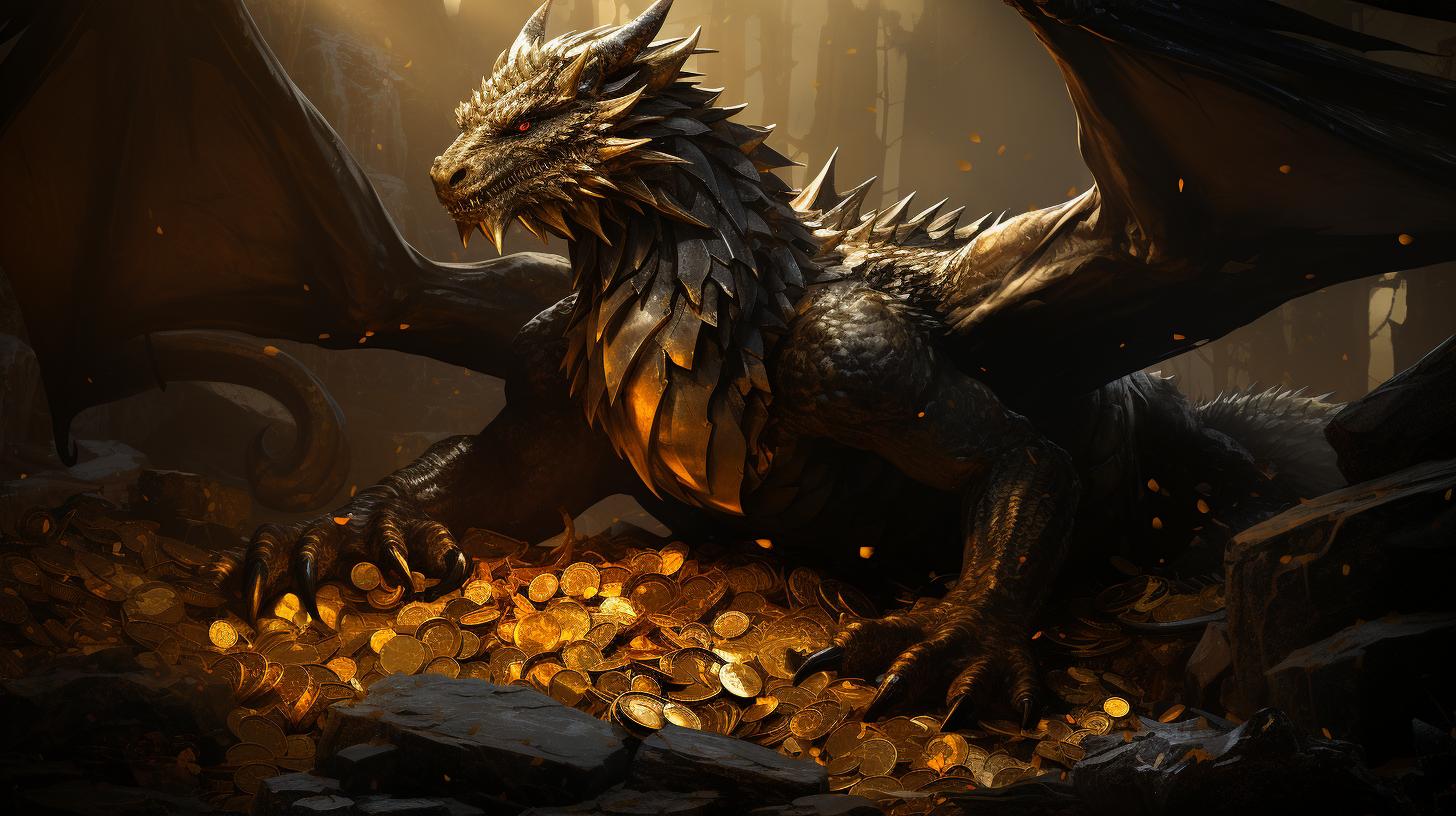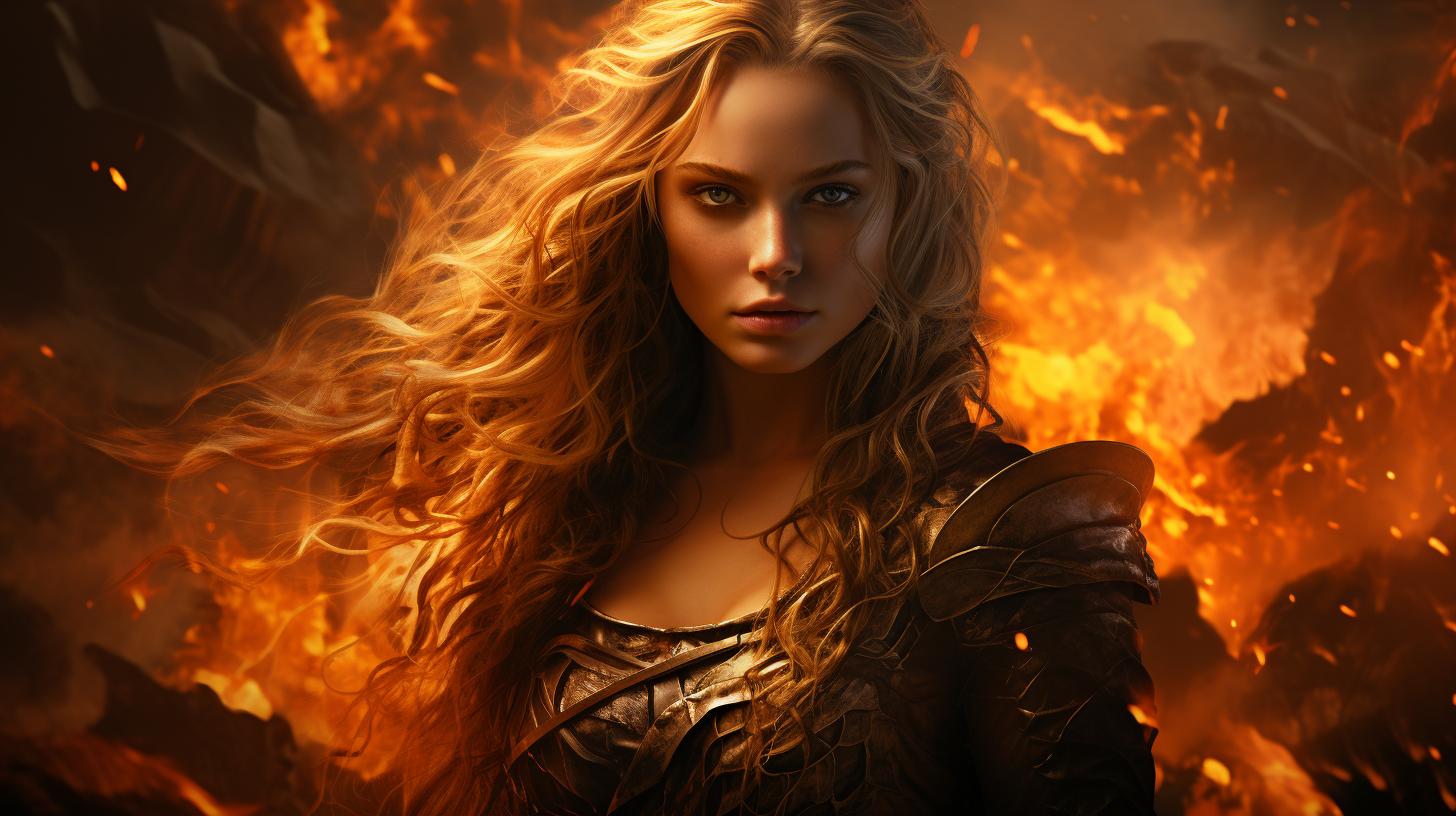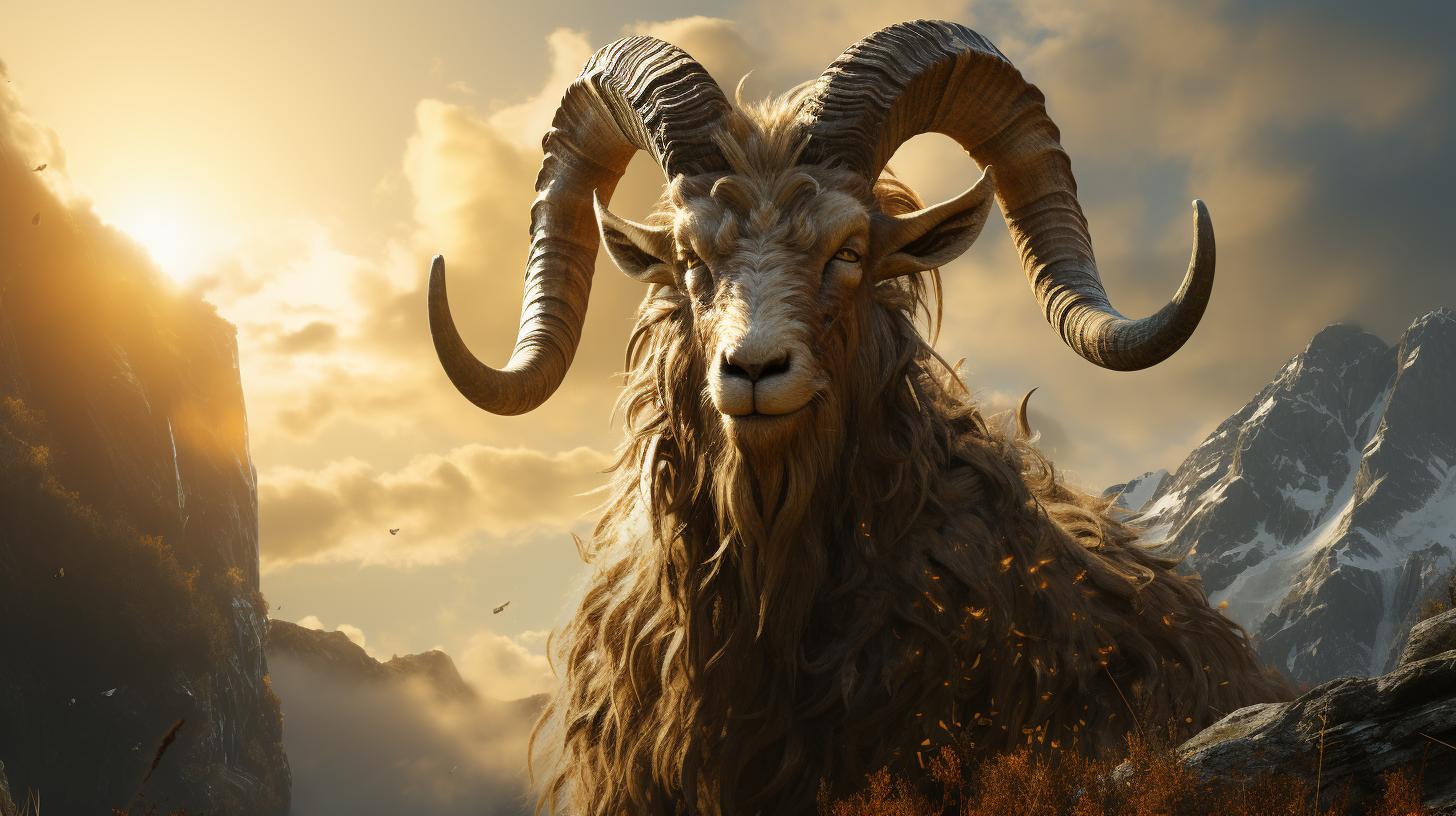Norse God Vali: The Avenger of Baldr in Norse Mythology

Vali, the Norse god of vengeance, played a significant role in the tragic death of Baldr. As the son of Odin and Rindr, Vali grew quickly and fearlessly sought justice by avenging his brother’s murder.
Surviving Ragnarök alongside his siblings, Vali’s story is considered one of the great tragedies in Norse mythology. This article explores Vali’s origins, his vow for vengeance, and the enduring legacy he holds in Norse culture.
Let us delve into the captivating realm of Vali and his profound impact on Asgard and beyond.
Norse God Vali: Exploring the Avenger of Baldr in Norse Mythology
Norse God Vali holds a significant role in the captivating tale of Baldr’s demise. Let us delve into the fascinating world of Vali, starting with his origins and exploring his traits as the God of Revenge and Bravery.
Through unravelling Vali’s relentless pursuit for justice and his involvement in Baldr’s tragic death, we gain insight into his complex character. As the courageous offspring of Odin and Rindr, Vali’s presence in Norse mythology is marked by his vengeful nature, his rapid growth, and ultimate victory over Baldr’s blind assassin, Höðr.
Join us as we unravel the enigmatic tale of Vali, his unique parentage, and the immense impact he leaves on the mythological and cultural fabric of ancient Norse society.
Who is Vali?
Vali, born to Odin and Rindr, emerges as a formidable deity donned with the responsibility of avenging his brother Baldr’s unjust death. Known for his bravery and exceptional marksmanship, Vali possesses the attributes necessary to fulfill his destiny as a symbol of revenge.
Vali’s Role in the Death of Baldr
In the tragic events surrounding Baldr’s demise, Vali becomes a pivotal player. As the one fated to avenge his brother’s murder, Vali courageously takes on the mission of confronting Baldr’s killer, Höðr, ultimately bringing about divine justice.
Vali’s Origins: Son of Odin and Rindr
Vali’s Traits: God of Revenge and Bravery
Vali’s portrayal in Norse mythology showcases him as a deity of vengeance, characterized by his exceptional valor in battles and his uncanny skill as an archer. With an unwavering vow to avenge Baldr, Vali refrains from washing his hands or grooming himself until he fulfills his duty, exemplifying his unyielding determination.
Vali’s Vow and the Path to Vengeance
Vali’s birth marked the beginning of a solemn journey filled with determination and unwavering resolve. As the avenger of Baldr’s death, Vali took a sacred oath to seek justice and avenge his brother’s untimely demise.
Fuelled by an unyielding desire for retribution, Vali made a vow of abstinence, pledging not to wash his hands nor comb his hair until the murderer of Baldr met his fate at the funeral pyre.
Vali’s path to vengeance was fraught with hardships and unrelenting dedication. He embarked on a relentless quest, traversing treacherous realms and facing formidable adversaries along the way. With each step, Vali sharpened his skills as a valiant warrior, honing his prowess in battles and demonstrating exceptional marksmanship as an archer.
His unwavering determination and bravery propelled him forward, ensuring that no obstacle would divert him from his sacred mission.
Vali’s vow and the path to vengeance symbolize the epitome of dedication and the pursuit of justice. His unwavering commitment to his brother’s memory serves as a prominent example of the profound importance of loyalty and familial bonds within Norse mythology.
Vali’s relentless journey leaves an indelible mark upon the rich tapestry of Norse lore and continues to inspire individuals to stand firm in the face of adversity in their own quests for justice and retribution.
Vali and Ragnarök: Surviving the End of the World
In the midst of the cataclysmic event known as Ragnarök, Vali, the Norse god of vengeance, defied the odds and emerged as one of the surviving deities in the Norse pantheon.
Amidst the destruction and the fall of mighty gods, Vali stood tall, defying fate itself. His unwavering determination and unmatched bravery allowed him to prevail in the face of annihilation. Vali’s survival alongside his siblings Baldr, Höðr, and Viðarr symbolizes the resilience and enduring spirit of the gods in the face of certain doom.
As the fires of Ragnarök raged on and the world as they knew it crumbled, Vali’s survival represented hope and the potential for a new beginning. Even as the forces of chaos threatened to consume everything, Vali’s presence reminded the surviving gods and their followers of their enduring strength and ability to stand against the forces of destruction.
In the aftermath of Ragnarök, Vali’s role in the rebirth and reconstruction of the world would become a vital part of the new era. His survival marked the promise of a brighter future, where the gods and mortal beings alike could rebuild and forge ahead with renewed purpose and resilience.
Unveiling the Tragic Tale: Vali’s Revenge for Baldr’s Death
The tragic tale of Vali’s revenge reverberates throughout Norse mythology, portraying his unwavering determination to avenge his brother Baldr’s untimely demise. Vali, the son of Odin and Rindr, emerges as the epitome of vengeance and bravery in his relentless pursuit of justice.
After his birth, Vali grows swiftly and becomes a formidable force, driven by the burning desire to punish Baldr’s blind assassin, Höðr. With his exceptional shooting skills and innate courage, Vali skillfully eliminates Höðr, ensuring justice is served for his fallen brother.
This riveting saga of Vali’s revenge showcases the depth of emotions and intense familial loyalty prevalent in Norse mythology. It captures the tragedy of Baldr’s death, the subsequent birth and growth of Vali, and the ultimate fulfillment of his vow to avenge his brother’s murder.
Vali’s tale stands as a testament to the profound impact of vengeance and honor within the Norse mythological realm, resonating with audiences to this day. Through his unwavering determination and acts of retribution, Vali’s story immortalizes the themes of justice and redemption, enriching the tapestry of Norse mythology.
The Significance of Vali in Norse Mythology
Vali, the Norse god of vengeance, holds a significant place in the rich tapestry of Norse mythology. His role as the avenger of Baldr’s death has made him a legendary figure in Norse culture.
Vali’s unwavering determination to avenge his brother’s murder showcases the importance of justice and retribution in Norse belief systems. As a god of revenge, Vali embodies the concept of standing up against injustice and fighting for what is right.
Furthermore, Vali’s bravery in battles and exceptional marksmanship make him a formidable and respected deity. His skill in archery and strategic warfare signifies his valor and strength, attributes highly admired in Norse society.
The story of Vali’s vengeful journey is regarded as one of the great tragedies of Norse mythology. It highlights the depths of human emotions, the consequences of betrayal, and the enduring power of familial bonds.
Vali’s presence extends beyond his role in avenging Baldr’s death. Surviving Ragnarök alongside his brothers Baldr, Höðr, and Viðarr, Vali symbolizes the triumph of good over evil and serves as a beacon of hope during the cataclysmic events foretold in Norse mythology.
Vali’s legacy endures, inspiring countless tales, artwork, and cultural interpretations. His story not only captivates the imagination but also serves as a reminder of the complexities of human nature and the eternal struggle between light and darkness.
Exploring Related Myths and Figures: Heimdallr, Narfi, Nari, and More
Vali, the Norse god of vengeance, is closely intertwined with various other myths and figures in Norse mythology. As we delve into the vast mythological realm, we encounter noteworthy beings like Heimdallr, Narfi, Nari, and several others who play significant roles.
Heimdallr
Heimdallr, known as the watchman of the gods, is an important figure closely associated with Vali. He guards the Bifröst, the rainbow bridge connecting Asgard and Midgard, and possesses exceptional senses, able to hear grass grow and spot intruders from afar.
Narfi and Nari
- Narfi, also known as Nari, is the son of Loki and Sigyn, making him Vali’s half-brother. Tragically, he becomes a victim of Loki‘s mischief, as the pernicious trickster causes his brother, Vali, to slay him.
These intertwined stories and connections between Vali, Heimdallr, Narfi, Nari, and other mythical figures deepen the narrative fabric of Norse mythology.
Exploring these tales not only sheds light on Vali’s journey but also provides a comprehensive understanding of the intricate web of divine beings and their roles within the mythological tapestry.
Vali in the Eddas and Other Norse Texts: An Overview
Vali, the Norse god of vengeance, is a prominent figure in various Norse texts, particularly in the Eddas, which are ancient collections of Norse mythology and poetry. These texts provide us with valuable insights into Vali’s role, characteristics, and significance within the context of Norse mythology.
In the Eddas, Vali is often portrayed as a courageous and determined deity, driven by the need to avenge his brother Baldr’s death. His tale is vividly depicted through epic poems, such as the Poetic Edda and the Prose Edda, where his deeds and the profound impact he had on both gods and giants are explored.
Vali’s vengeful nature and remarkable combat skills make him a compelling character in these texts. His story serves as a cautionary tale of the consequences of divine retribution and unleashes intricate dynamics between gods, giants, and other mythical beings.
Furthermore, other Norse texts, such as sagas and skaldic poetry, also make references to Vali, offering additional glimpses into his mythological portrayal.
Overall, the Eddas and other Norse texts provide a rich and multifaceted perspective on Vali’s role, allowing us to delve deeper into the captivating world of Norse mythology and understand the profound impact this vengeful god had on the ancient Norse culture.
Mythological Connections: Vimur River, Jormungandr, and more
Vali’s mythological connections extend beyond his role as the avenger of Baldr. In Norse mythology, two significant elements are intrinsically linked to Vali: the Vimur River and Jormungandr, the World Serpent.
The Vimur River, located in the realm of the gods, often symbolizes Vali’s connection to vengeance and justice. It flows forcefully, reflecting Vali’s determination to avenge his brother’s death and bring about retribution.
The river’s turbulent waters represent the fierce battles Vali courageously fought in his pursuit of justice.
Another prominent connection is with Jormungandr, the monstrous serpent that encircles the world. Vali’s resilience is mirrored in Jormungandr‘s unyielding nature, representing their shared destiny to survive Ragnarök. This link illustrates Vali’s role as a protector and his significance in the grand narrative of Norse mythology.
These mythological connections highlight the intertwining tales and symbols in Norse mythology, showcasing Vali’s presence in multifaceted aspects of the mythical realm.
Vali’s Legacy: Influence on Norse Culture and Beliefs
Vali’s tale and his unwavering commitment to seek revenge for Baldr’s death have left an indelible mark on Norse culture and beliefs. His vengeful nature embodies the strong sense of justice and honor revered by the ancient Norse society.
One significant aspect of Vali’s legacy can be seen in the celebration of his story during annual festivals and rituals. These events serve as a reminder of the importance of seeking justice and standing up against wrongdoing.
Vali’s narrative continues to inspire individuals to fight for fairness and avenge the loss of loved ones.
Moreover, Vali’s heroic attributes, such as his bravery and skilled marksmanship, have become aspirational qualities in Norse mythology. Vali represents the relentless pursuit of what is right, even in the face of adversity.
His story serves as a moral lesson, teaching the importance of seeking retribution for injustice.
Vali’s influence can also be seen in various artistic expressions within Norse culture. From ancient pottery and sculptures to contemporary literature and music, Vali’s depiction resonates with artists and enthusiasts alike, capturing the essence of revenge, bravery, and the enduring power of familial bonds.
Overall, Vali’s legacy has permeated Norse culture, inspiring generations with tales of revenge, justice, and the unbreakable spirit of a god seeking to right a wrong. His role as the avenger of Baldr continues to captivate and engage audiences, reminding us of the enduring power of myth and the values it instills within us.
Exploring the Mythological Realm: Vali’s Impact on Asgard and Beyond
As we delve into the mythological realm of Norse gods, it becomes evident that Vali’s impact reaches far beyond the borders of Asgard. His role as the avenger of Baldr resonates throughout the pantheon of deities and extends into the realms of human existence.
Vali’s story serves as a timeless reminder of the consequences of betrayal and the pursuit of justice. His vengeful nature and unwavering determination to avenge his brother’s death embody the ideals of honor and loyalty within Norse mythology.
Beyond the confines of Asgard, Vali’s influence can be seen in the intricate connections between mythological entities. From the Vimur River, representing the boundary between life and death, to the mighty Jormungandr, the world serpent, Vali’s presence intertwines with the very fabric of Norse cosmology.
This impact extends to the beliefs and cultural practices of Norse society. Vali’s tragic tale serves as a cautionary tale, reminding individuals of the importance of family bonds and the pursuit of justice.
Through exploring Vali’s mythological realm, we gain a deeper understanding of the enduring legacy and significance this vengeful god holds in both Asgard and the wider Norse mythos…….

